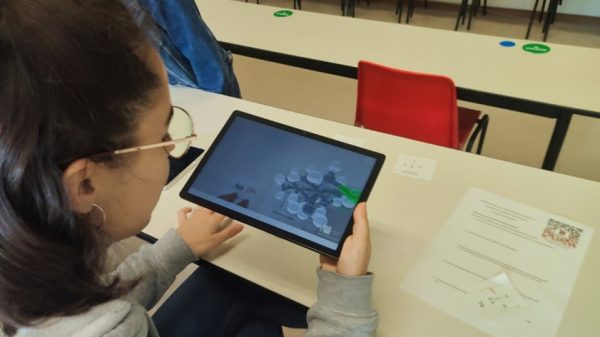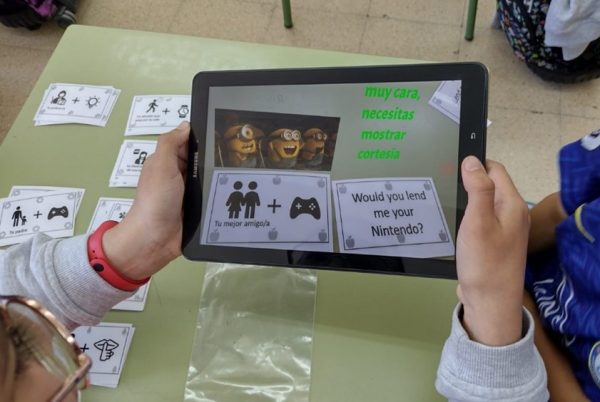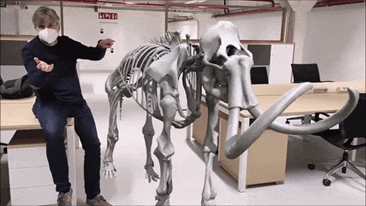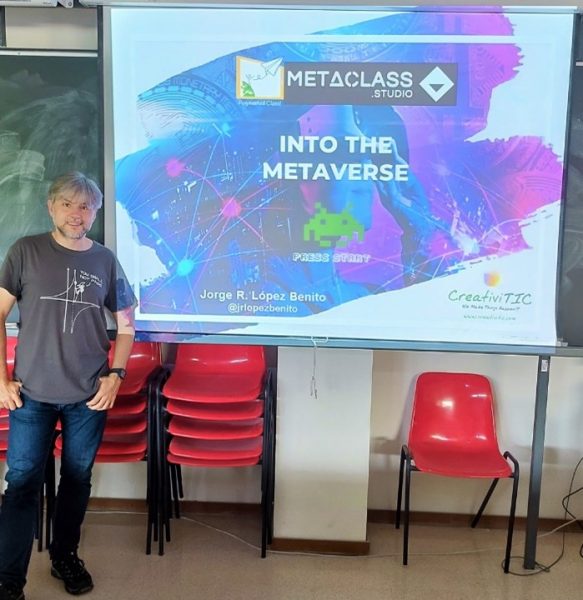News & Events
Interview with Jorge Lopez from CreativiTic
News |
An exclusive interview with our amazing partner expert in augmented reality and metaverse!

- CreativiTIC started in 2011 in Spain dealing with empowering human development through immersive technologies. The company seeks to offer innovative solutions in the Education, eHealth and Industry 4.0 fields. How did it go? Was it simple or did they take you as visionaries?
We were pioneers. In 2011, the Google Glass augmented reality glasses had not yet been released, nor the Oculus virtual reality glasses, nor Pokémon GO, nor most of the comforts that we have today available with immersive technologies. It was not easy to reach people with the improvements that this technology was going to bring us, but time has proved us right and today they are a reality.

- Can you explain us the differnce between AR and VR?
The differences between VR and AR come down to the devices they require and the experience itself:
Virtual Reality is a technology that creates a virtual environment. People interact in these environments using, for example, virtual reality glasses or other mobile devices.
Augmented Reality is the real-time use of information in the form of text, graphics, audio, and other virtual enhancements integrated with real-world objects. It is this “real world” element that sets AR apart from virtual reality. AR integrates and adds value to the user’s interaction with the real world, versus a simulation.
- Teaching with augmented reality represents one of the new frontiers of the new innovative teaching, can you provide us with some examples?
There are numerous examples today as they can be applied to almost all learning disciplines. This can range from its incorporation in the explanation of the chemical formulation to the improvement in the learning of a second language or a better explanation of the historical context and cultural heritage.

- Which are the benefits of this methodology?
The benefits of including Augmented Reality are diverse and proven. Among them we can find that they help to: a greater understanding of the content, facilitate spatial learning, improve linguistic associations, help the long-term memory retention, improve teamwork performance and increase the motivation of students and teachers.

- The metaverse that seems such a distant thing. In your opinion how does this world work and how much will it actually affect our lives?
The metaverse isn’t as far away as we think. We can already incorporate all the technologies that the metaverse will contain, what’s more, we are already incorporating them with the AR and VR experiences. The metaverse is a new paradigm that is positioning itself very quickly and in which a lot of money is being invested from both public and private institutions. This same month of June will be one of the main topics of debate at the Digital Assembly 2022 organized by the European Commission in Toulouse and where I will attend to prepare the strategy that Europe will have to shape the metaverse. The metaverse is the future of the internet, it is the new evolution towards a web3 and a 3D internet where the use of AR and VR technologies will be the path through which we will abandon our dependence on screens and technology tactile to be able to interact with all the information that surrounds us in a natural way . And of course, it will revolutionize the way we understand learning today.

